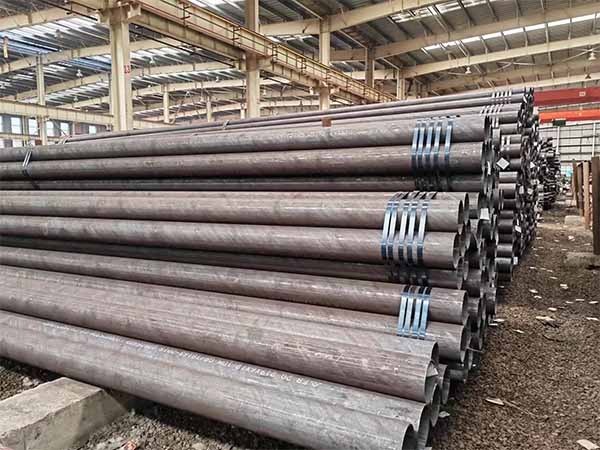
What is Schedule 10 steel pipe?
Schedule 10 belongs to thin-walled steel pipes, which are light in weight and low in cost. They are often used in:
Water supply and drainage system
Fire sprinkler piping
Low-pressure air and gas transportation
Food-grade and pharmaceutical industry pipes (especially stainless steel Schedule 10 stainless steel pipes
Due to its light weight, Schedule 10 steel pipes are easier and faster to install, making them highly suitable for large-scale engineering projects.
What is Schedule 80 steel pipe?
Schedule 80 belongs to thick-walled steel pipes, with a wall thickness almost twice that of Schedule 10. It has a higher pressure-bearing capacity and durability, and is often used for:
High-pressure steam and boiler systems
Oil, natural gas and chemical pipelines
Industrial applications with high strength and high safety requirements
Comparison of Schedule 10 vs. Schedule 80
Wall thickness: Schedule 10 has a thinner wall thickness, while Schedule 80 has a thicker wall thickness.
Weight: Schedule 10 is lighter in weight, making it easier to handle and install. Schedule 80 is heavier.
Pressure resistance capacity: Schedule 10 pressure resistance capacity is suitable for medium and low-pressure systems, while Schedule 80 is suitable for high-pressure working conditions.
Cost: Schedule 10 has a lower cost and better economy. Schedule 80 is more costly but safer.
How to choose?
If it is for low-pressure fluid transportation, water supply and drainage or clean process pipelines, Schedule 10 steel pipes are more suitable.
If high-pressure, high-temperature or high-intensity industrial systems are involved, Schedule 80 steel pipes should be selected to ensure safety and durability.
Conclusion
Both Schedule 10 steel pipes and Schedule 80 steel pipes play significant roles in industrial and engineering applications. For most low-pressure, economical applications, Schedule 10 steel pipes offer a balanced option in terms of cost, performance and installation convenience.
Read more : Schedule 40 stainless steel pipe standard or SCH 80 carbon steel pipe

